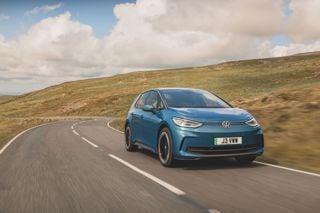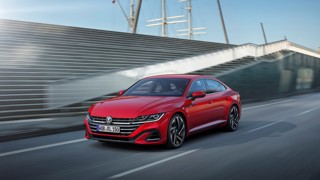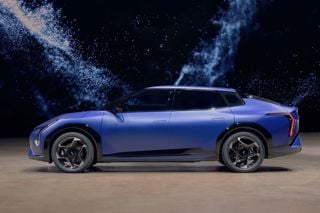Volkswagen has upgraded its electric vehicle (EV) sales ambition with a new pledge that 70% of the cars it sells in Europe will be fully electric models by 2030.
The brand had previously set a target of 35%, but CEO Ralf Brandstätter (pictured) wants VW to be “the most attractive brand for sustainable mobility”.
He outlined a strategy to launch one new EV each year, including three in 2021.
The all-wheel-drive ID.4 GTX will kick things off in the first half of 2021, followed by the ID.5 in the second half of the year. The ID.6 X / Cross1, a seven-seater electric SUV for the Chinese market, will be launched in autumn.
Plans for an electric car to sit beneath the ID.3 - with an entry-level price starting at £17,000 - are pushed up by two years to 2025.
In the US and China, the brand is targeting an EV market share of more than 50% in the same period.
The combustion engine fleet will also be developed further in parallel to the acceleration of the e-campaign. All of the core models, including the Golf, Tiguan, Passat and T-ROC, will get another successor.
Brandstätter added: “We will still need combustion engines for a while, but they should be as efficient as possible, which is why the next generation of our core products – all of which are world models – will also be fitted with the latest generation of plug-in hybrid technology, with an electric range of up to 100 kilometers (62 miles).”
As part of its EV expansion the brand is investing heavily in digital services and software. Integration of software into the vehicle and the digital customer experience will thus become core competencies of VW.
It has established the ID. Digital agile project unit that will provide “over-the-air” updates every 12 weeks starting in summer 2021. This will enable vehicles to remain up to date throughout their life cycle and gain new functions. A fully networked fleet of more than 500,000 vehicles is expected to be on the road in two years’ time, through which Volkswagen will be able to transmit direct customer feedback to new functions.
By turning the vehicle into a software-based product, VW is setting the scene for new, data-based business models aimed at lowering entry barriers to individual mobility while offering very attractive service packages for the customers.
VW aims to generate additional revenue over the service life of the vehicle through charging and energy services, through software-based functions that customers can reserve as needed, or through automated driving.
Everything VW has planned for the future will be demonstrated in a vehicle for the first time in 2026. It will launch Project Trinity, an electric saloon car with level 4 autonomous capability.





















Login to comment
Comments
No comments have been made yet.